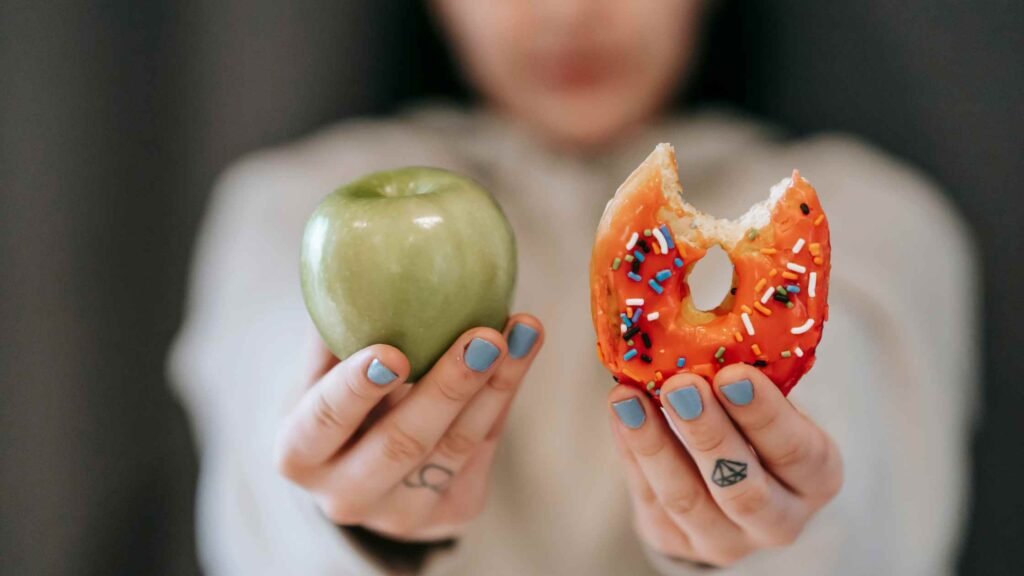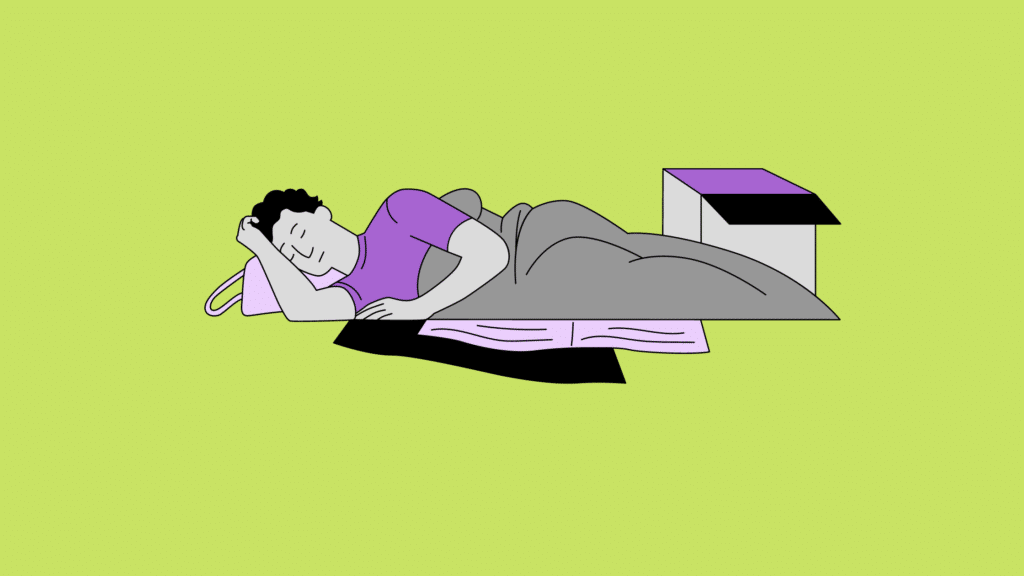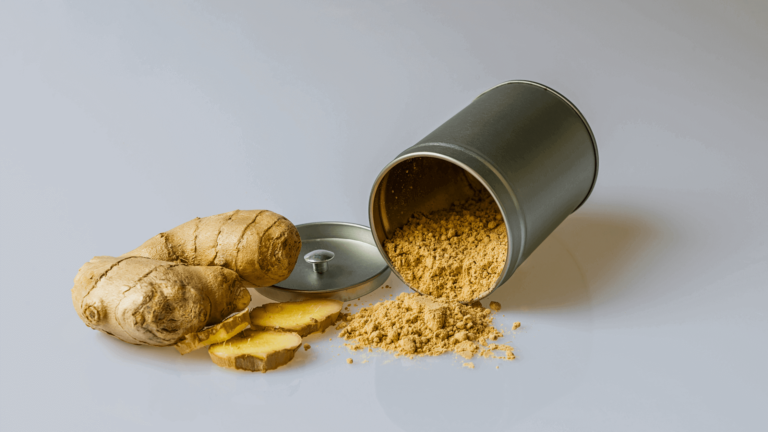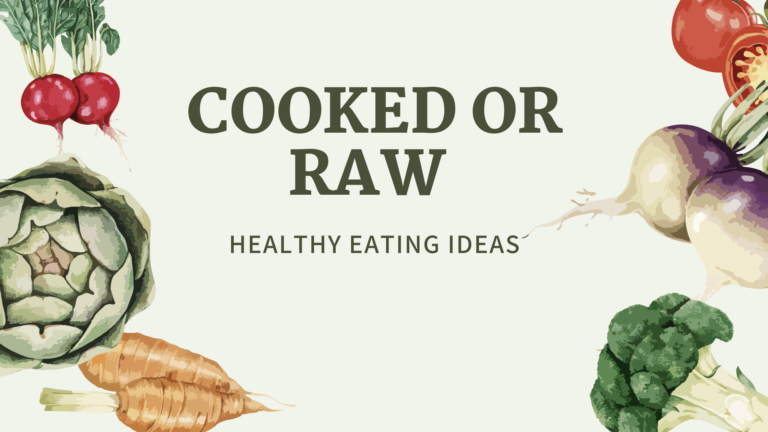What Happens If You Stop Eating Sugar For 14 Days

The 2015-2020 Dietary Guidelines say that Americans eat an average of 270 calories of added sugars every day. This amounts to approximately 17 teaspoons of sugar per day; the recommended daily intake for males and women, respectively, is 9 teaspoons (150 calories) and 6 teaspoons (100 calories).
Your likelihood of developing type 2 diabetes, heart disease, and obesity can all be affected by eating too much sugar. But this does not imply that you should never consume sugar. The American Heart Association advises against choosing foods that are already quite sweetened and instead recommends adding a modest amount of sugar to enhance the flavor of foods like whole-grain cereal.
However, if you want to eliminate sugar from your diet entirely or for a limited time, it can cause obvious changes in your body and your mood.
What Happens If You Stop Eating Sugar For 14 Days
Even while it may be difficult to refrain from ordering an ice-cold coke with your burger or refrain from grazing your fingers in the candy bowl at gatherings, cutting out sugar from your diet can have a substantial positive impact on your health, by following these tips and see how 14 days without sugar before and after :
1. Loss of Sugar Appetite

You’ve definitely heard this before: sugar is addictive, which is why it’s so challenging to cut it out of our diets and why our bodies have such a bad reaction to the withdrawal process. The addictive properties of sugar are deliberate. A high-sugar diet causes wild fluctuations in blood sugar levels, which can be difficult to keep under control.
According to certified dietitian Jenna Hope, as quoted by Cosmopolitan, “the lows cause you to rapidly boost your blood glucose and, as a result, you are more likely to seek more sugar items,” which keeps you “surfing the sugar roller coaster.”
It’s normal for the body to seek these extremes. Putting an end to sugar consumption altogether will help you avoid the gloomy effects of sugar withdrawal and lessen your desire to indulge in unhealthy foods.
The first thing that will happen when you entirely stop taking sugar for two weeks is that you’ll lose your appetite for sweets. Why? This is due to a hormone that is activated and causes your blood sugar to drop every time you consume sugar, leading to a low blood sugar condition (hypoglycemia to some degree). This makes you need sweets, yet eliminating sugar from your diet also eliminates the cravings.
Tip
”Your blood sugar (glucose) level is below the normal range if you have hypoglycemia. Your body uses glucose as its primary energy source. Hypoglycemia and diabetes management frequently go hand in hand”
2. A Lower Chance of Developing Diabetes
Consuming excessive quantities of sugary foods is a major contributor to the development of type 2 diabetes. The risk of developing diabetes is, therefore, within our control. If we all make the brave decision to cut our sugar intake, the vast majority of us will avoid this deadly disease.
Because elevated blood sugar levels are a major contributor to diabetes, consuming sugar raises our chance of developing the disease. High blood sugar follows a meal high in sugar. High blood sugar levels, over time, can lead to insulin resistance, which is harmful to the liver, pancreas, and other organs. There are several causes of diabetes, but sugar is a major one.
3. You could lose weight.
As we mentioned and according to Kaufman, sugar can be addictive. By consuming less of it, we also have fewer cravings, which helps us eat fewer calories and lose weight. When you eat whole foods instead of sugar, your hormones will naturally balance and tell your brain when you’ve had enough to eat.
When you consume too many calories and gain weight as a result, experts claim, “your body may not get the signal that you’re full when you eat refined sugar.” You’ll consequently lose weight without putting in much effort—often within the first week, she claims.
4. You might experience fewer colds.
Sugar increases chronic inflammation, which decreases our immune system’s capacity to fend off colds and the flu. How does your body react when you stop consuming sugar?
It’s not too difficult to eat less sugar if you try these simple food adjustments to lower your sugar intake. “You’re likely to have fewer sniffles year-round, and it may also help to minimize your allergy and asthma symptoms too.”
Tip
You must have patience and tenacity if you want to be successful in reducing your sugar intake.
5. You’ll experience an uplift in mood and feel lighter.
While indulging in your favorite sweets could temporarily improve your mood, it might have a negative impact on your mental health in the long run. Did you realize that eating too much sugar might make you feel down? One of the reasons eating too much sugar might make you sad is because of the underlying chronic inflammation that occurs when we do.
Female participants in a study published in the American Journal of Clinical Nutrition in 2015 were shown to be at greater risk for depression if they consumed high-glycemic-index sweet meals. Scientific Reports conducted a second study in 2017 that revealed males who consumed more than 67 grams of sugar daily had a higher risk of depression than men who consumed less than 40 grams of sugar daily.
Just imagine a young child after they’ve depleted their Halloween or Easter candy supply. They can suddenly become quite annoying naysayers! If you’re trying to eat your way out of a low mood, you should probably cut off sweets.
6. Your Dental Health Will Improve
A 2013 investigation that was disseminated in International Scholarly Research Notices: Dentistry highlights the connection between sugar and cavities and tooth decay.
Has your spouse ever voiced an objection to your breath? Perhaps you’ve even occasionally caught yourself having terrible breath. If so, you should quit consuming sugar. The bacteria in your mouth that produces bad breath is brought on by sugar. Your sweet tooth doesn’t seem so sweet after all, certainly not for your honey. If you want more kisses and a healthier love life, cut back on sugar!
Make every effort to cut back on your sugar intake if you want to keep your teeth healthy and avoid more serious issues like root canals. Always clean between your teeth and brush them at least twice daily. Your teeth will appreciate it!
7. Your Memories Will Improve

Although you may be more inclined to attribute your grogginess and sluggishness to a lack of sleep, sugar may actually be to fault. An animal study conducted by UCLA found that a diet high in sugar can have an impact on memory and learning. According to a study, eating a lot of sugar over time may harm brain cell communication, according to Prevention.
Try avoiding sugar if you notice that it’s affecting your ability to think clearly or to be intellectually sharp. Check out this article on the harmful effects of sugar on the brain to learn more.
A high-fructose diet exacerbates memory deficiencies while also causing hippocampus insulin resistance, according to a 2014 study that was published in Nutritional Neuroscience.
Another study, which was published in the journal Molecular Neurobiology, discovered a connection between sugar consumption and detrimental alterations in the frontal cortex of the brain, changes which are linked to additional cognitive issues.
Stop eating sugar if you want to maintain your mental sharpness and awareness, especially as you become older. Your mind will lavishly reward you.
8. Better sleep is on the way

If you have a habit of munching on junk food right before bed, you may find that sugar prevents you from getting a good night’s rest. Night sweats are a common side effect of eating too much sugar before bed. One’s hormones, particularly those that promote restful sleep, work better when sugar consumption is reduced.
Hormones released during times of stress are frequently to blame for a night of restless sleep. Keep this in mind the next time you grab that late-night treat. There is a correlation between consuming something high in sugar and a rise in stress hormones, both of which might disrupt your ability to get quality rest.
9. Your Skin Will Get Better
Your skin will clear up, which is one of the most noticeable physical results of taking off sugar from your diet. Goodbye, acne in its entirety! Sugar is an inflammatory food, and as Prevention notes, systemic inflammation is what causes acne, which is why sugar causes acne. According to the report, research in the American Journal of Clinical Nutrition discovered that when non-soda drinkers consumed one 12-ounce can each day for three weeks, their inflammation levels rose by 87%.
Eating less sugar is an excellent strategy to stop wrinkles and aging skin in addition to clearing up any acne.
The two crucial proteins collagen and elastin are in charge of keeping the skin appearing young, but sugar acts to break them down. According to Reader’s Digest contributor Anthony Youn, MD, a plastic surgeon from Troy, Michigan, and author of The Age Fix: A Leading Plastic Surgeon Reveals How To Really Look Ten Years Younger, “Sugar causes glycation, a process by which the sugar molecules bind to and deform the collagen and elastin in our skin.”
If you go sugar-free for just 14 days, your skin will begin to glow. Dr. Youn quotes the source as saying, “Giving up (or cutting back on) sugar will also reduce glucose and [the hormone that regulates glucose] in your bloodstream, reducing chronic and acute inflammation linked to aging.
10. Lower Fatigue

When you give up sweets for two weeks, you feel less worn out, especially after a meal. Regular sugar consumption frequently leaves you feeling exhausted afterward.
However, if you go two weeks without sweets, you’ll notice that you don’t feel as exhausted after meals as you did before. As a result, you won’t have excessive blood sugar levels, which fatigue the brain. Normal sugar levels are simpler to reach, which awakens your brain. According to
11. Liver purging
As your body begins to eliminate the fat that has built up in your liver, which you may use as fuel, your liver also starts to become fat-free. Your liver is being cleaned out so that it is no longer fatty, which you are doing. It’s likely that you also have a fatty liver if you have abdominal fat and begin to gain weight. Always according to Dr. Eric Berg.
12. Improved Liver Health.
The liver, like the heart, benefits substantially from reduced sugar intake. “high sugar consumption (especially in the form of fructose) and sugar-sweetened beverages are heavily connected to non-alcoholic fatty liver disease.” ,( source ). Fructose that the liver cannot process because of a lack of glucose is instead stored in the body. It has been shown that reducing sugar intake can help lower the chance of developing non-alcoholic fatty liver disease.
13. Better Gut Health
This is solely because those who avoid added or processed sugar are more likely to consume wholesome foods high in dietary fiber, such as fruits and vegetables, nuts, seeds, and whole grains, all of which are beneficial to the digestive system.
These meals help to increase the number of beneficial bacteria in the gut, which supports the good gut function. The removal of undesired pollutants increased the frequency of bowel movements, and shortened transit times result from this.
14. Decreases your risk of developing depression.
Our diet may have an impact on how our brains work, which in turn may affect how we feel. For instance, a lower incidence of depressive symptoms are linked to consuming healthy diets that prioritize fish, whole grains, nuts, and fresh fruits and vegetables
Sugary drinks may also increase your risk of developing depression and depressive symptoms, according to numerous research. This may be due to the fact that eating too much sugar can become addicted since it causes your brain to release endorphins and dopamine, which are feel-good hormones. This may affect your mood over time.
Other research, however, has not connected sugar consumption to the likelihood of depression. To better understand how sugar can impact your mood, more research is required.
15. Cooking Will Increase
You’ll become more conscious of all the harmful components in processed food when you give up sugar for 14 days. The answer? You’ll start cooking nutritious meals at home and scrutinizing the ingredient list on packets. better for your family and you.
Final Thoughts
What Happens If You Stop Eating Sugar For 14 Days has been linked to numerous health benefits, including weight maintenance, reduced depression risk, and lower cardiovascular disease risk.
It’s important to keep in mind that the purpose of eating is to provide energy and nutrients, not to hurt your body. As a culture, we appear to mark every occasion with a feast. The consumption of food is not to be viewed as a reward. Athletes don’t view food that way. What we eat is merely fuel for our bodies. Eating healthily will become easier and more habitual if you shift your perspective and see food as fuel rather than a reward or method to celebrate.
If you have a blood sugar-related health problem or are at risk for developing one, it's important to discuss sugar management with your doctor.







One Comment